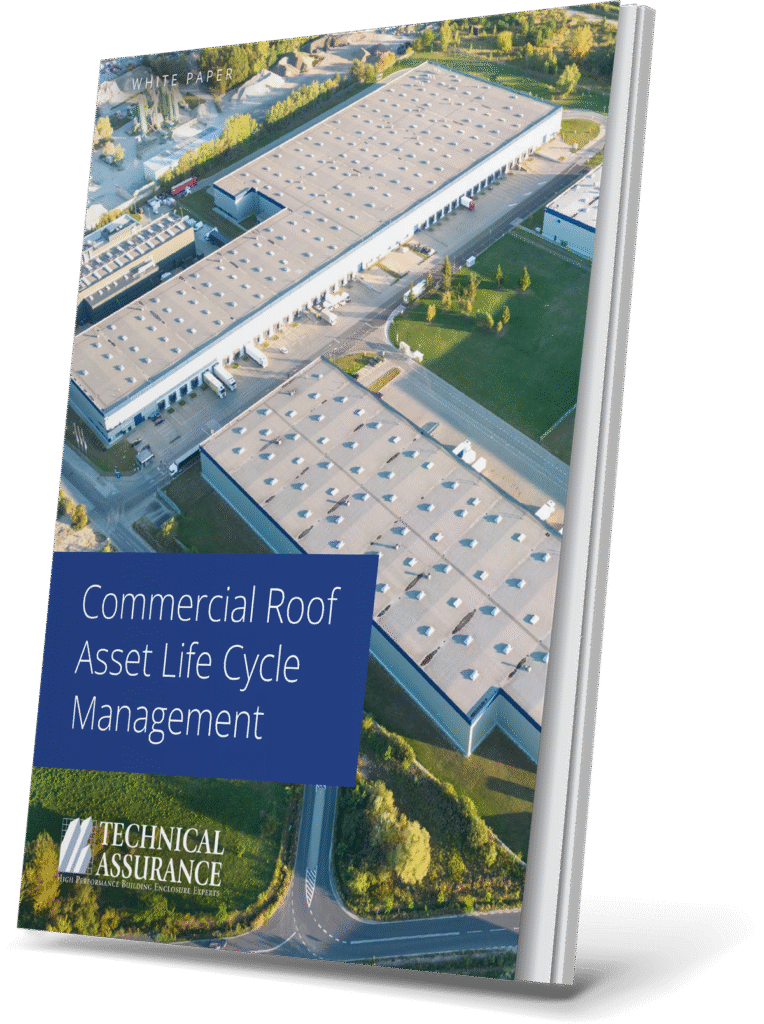Most Commercial Roofs Fail Too Soon. Here's Why:
The average life of a new commercial roof is just 17–19 years. With the right management approach, that can be extended to 30+ years, cutting total cost of ownership by up to 25%
Most facilities rely on reactive spending, not long-term investing. Roofs are replaced prematurely—or worse, allowed to fail—causing budget chaos, emergency repairs, and operational shutdowns.
What You’ll Learn in the Download
Here’s a sneak peek into what the white paper delivers:
Spending vs. Investing: What Most Organizations Get Wrong
Run-to-Failure:
- Wait for leaks or damage
- Patch reactively
- Replace entire roofs earlier than needed
Investment-Based Strategy:
- Assess condition and criticality
- Schedule cost-effective repairs
- Extend asset life with a planned 10-year program
3 Metrics for Smarter Roof Decisions
Technical Assurance uses a data-backed triage model to prioritize your capital spend:
- Condition Index (CI): Quantifies the condition of individual assets
- Mission Dependency Index (MDI): Ranks asset importance to organizational mission
- System Criticality Index (SCI): Ranks various building systems relative to each other
This method provides a quick and credible solution to the complex problem of ranking capital and repair projects.
Real Results from a Sustainable Program
Technical Assurance’s programmatic approach can help:
- Reduce spend by 10–12%
- Extend roof life by 15–20%
- Cut deferred backlog by 30%
- Lower TCO by 25%
Case Study
$3M+ in Savings for a Fortune 500 Company
A national manufacturer planned to spend $6.4 million replacing several roof sections. After assessment, only $1.4M in replacements and $1.7M in restoration were needed, plus a preventative plan at just $30k/year.
Savings: $3.3M over 10 years
Roof asset life extended by a decade

Download the White Paper to Learn More About…
- Building a smart, long-term capital spend plan
- Identifying what to replace vs. what to maintain
- Making your roof a performance asset, not a budget drain
Submit the form below to access your PDF copy of the white paper.
